SLVSG04 November 2021 LM66200
PRODUCTION DATA
- 1 Features
- 2 Applications
- 3 Description
- 4 Revision History
- 5 Pin Configuration and Functions
- 6 Specifications
- 7 Detailed Description
- 8 Application and Implementation
- 9 Power Supply Recommendations
- 10Layout
- 11Device and Documentation Support
- 12Mechanical, Packaging, and Orderable Information
Package Options
Mechanical Data (Package|Pins)
- DRL|8
Thermal pad, mechanical data (Package|Pins)
Orderable Information
6.7 Typical Characteristics
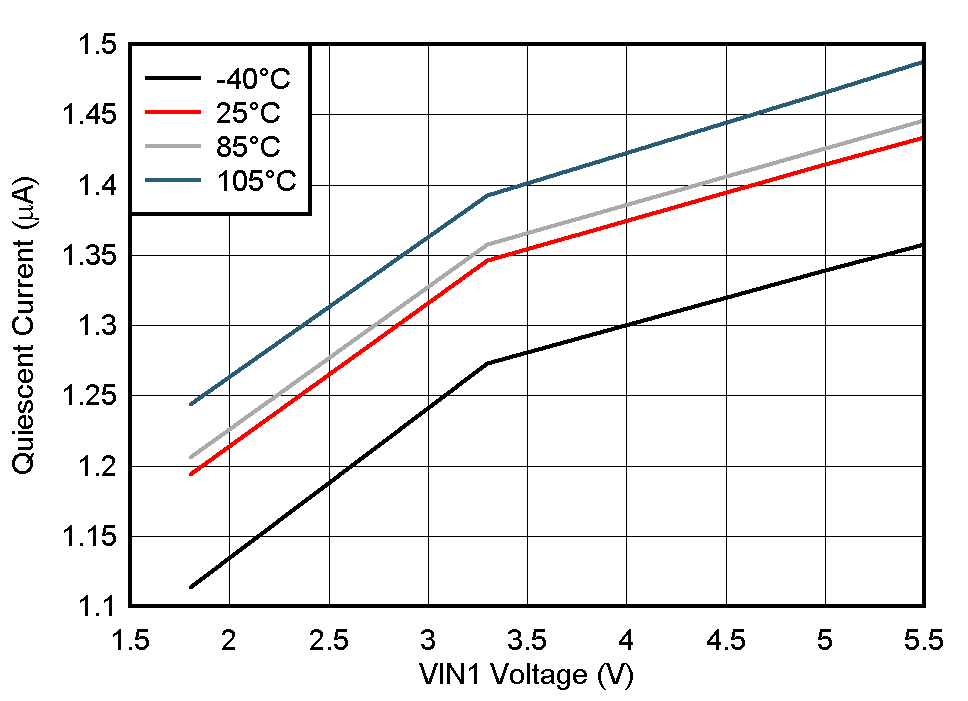
| VIN2 = 1.6 V | VOUT = Open |
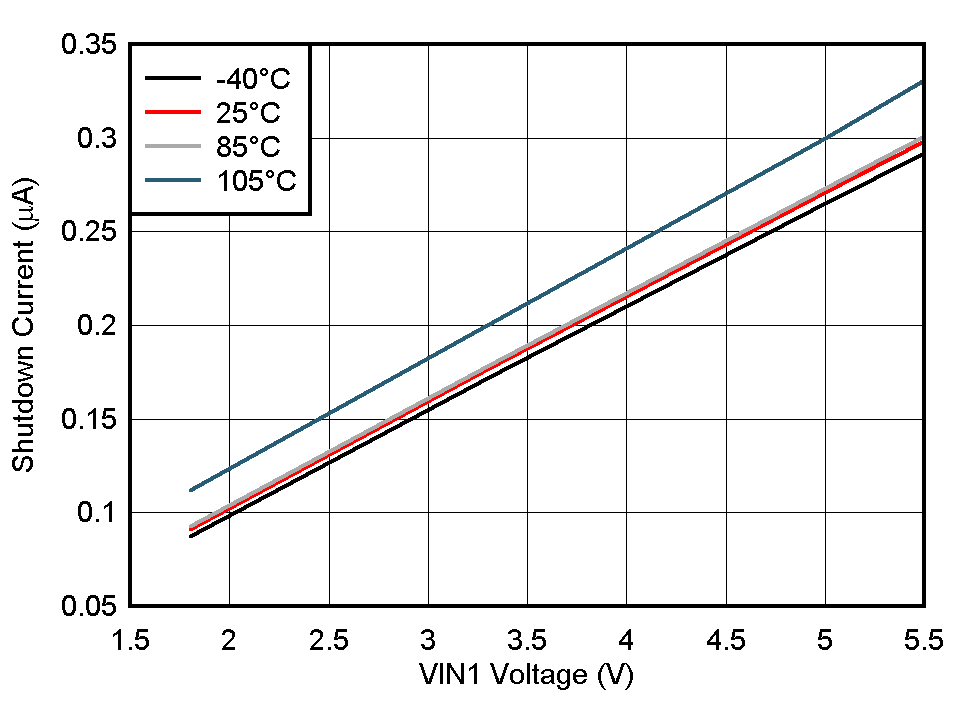
| VIN2 = 1.6 V | VOUT = 0 V |
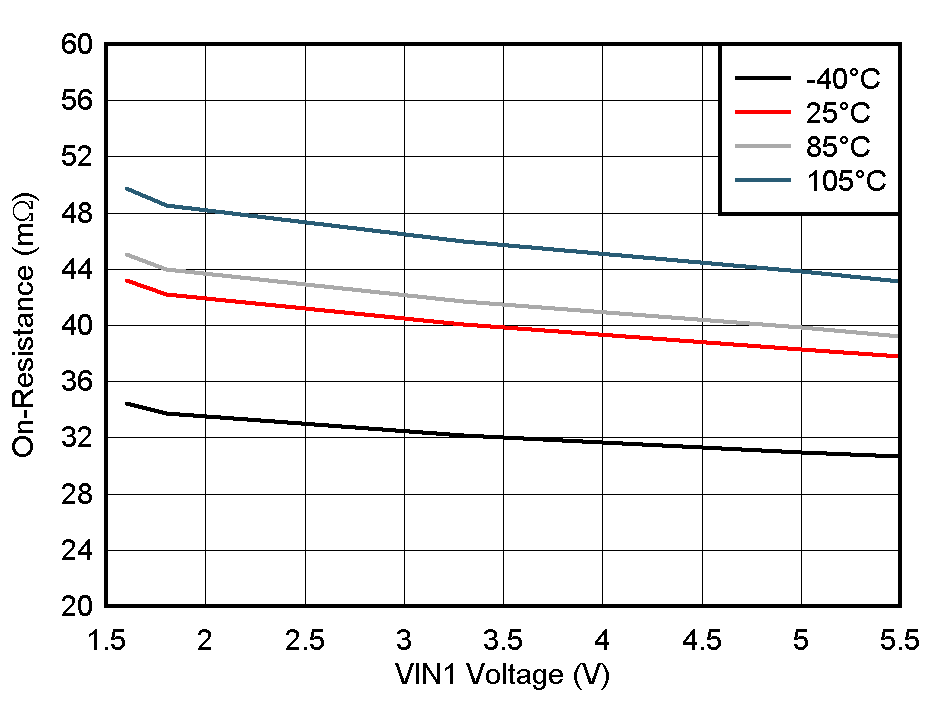
| IOUT = 200 mA |
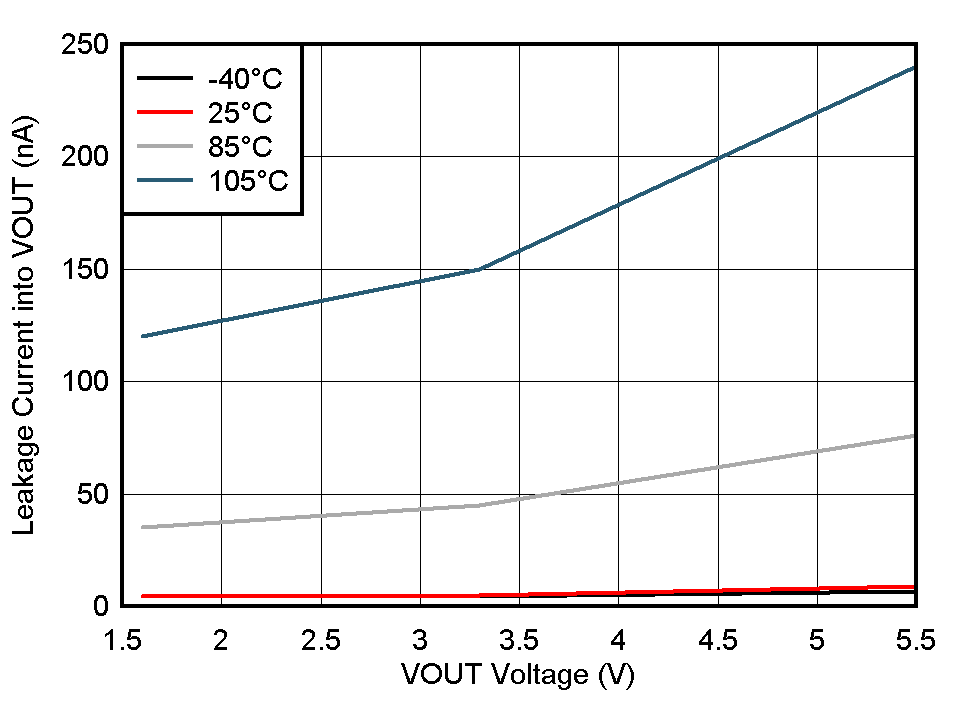
| VINx = 0 V | VINy = Open |
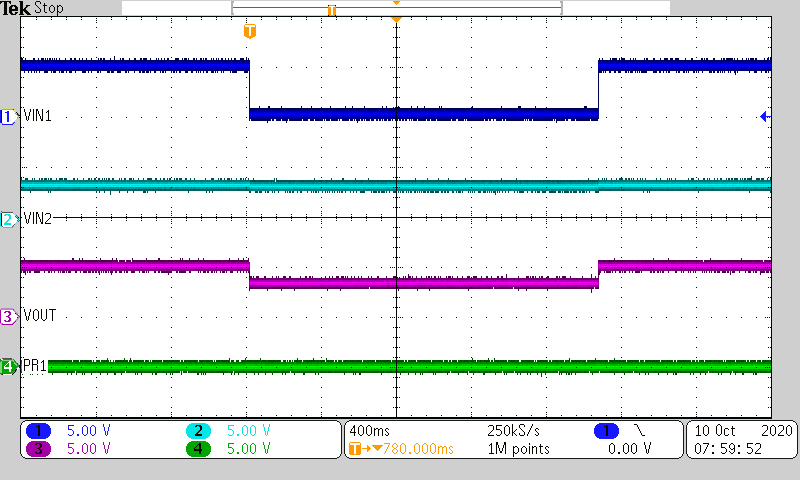 Figure 6-9 Diode
Mode Switchover Behavior (RL = 10 Ω, CL = 10 uF)
Figure 6-9 Diode
Mode Switchover Behavior (RL = 10 Ω, CL = 10 uF)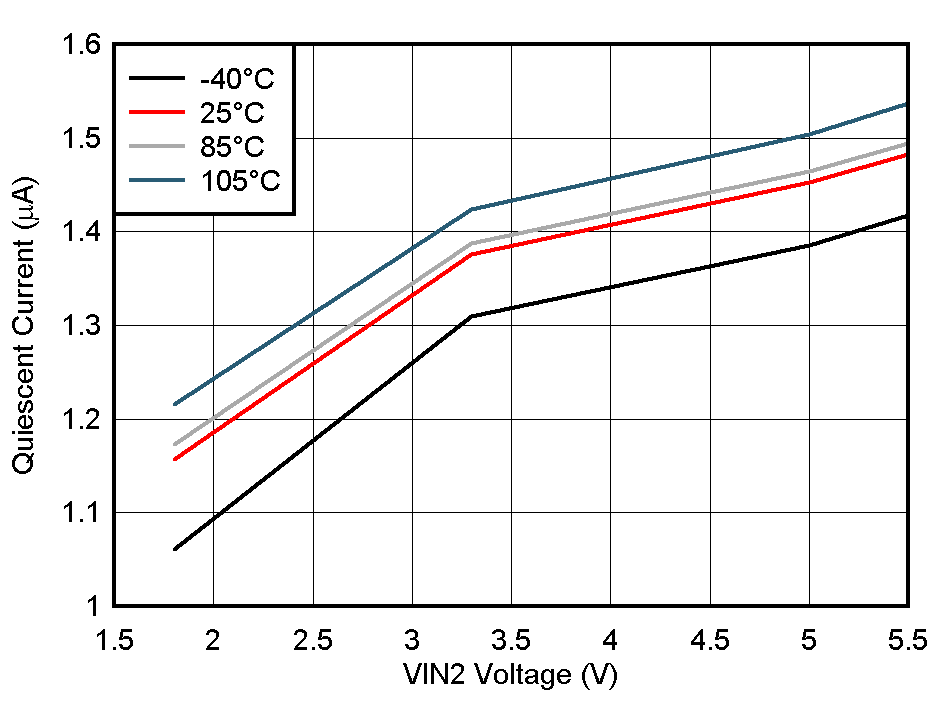
| VIN1 = 1.6 V | VOUT = Open |
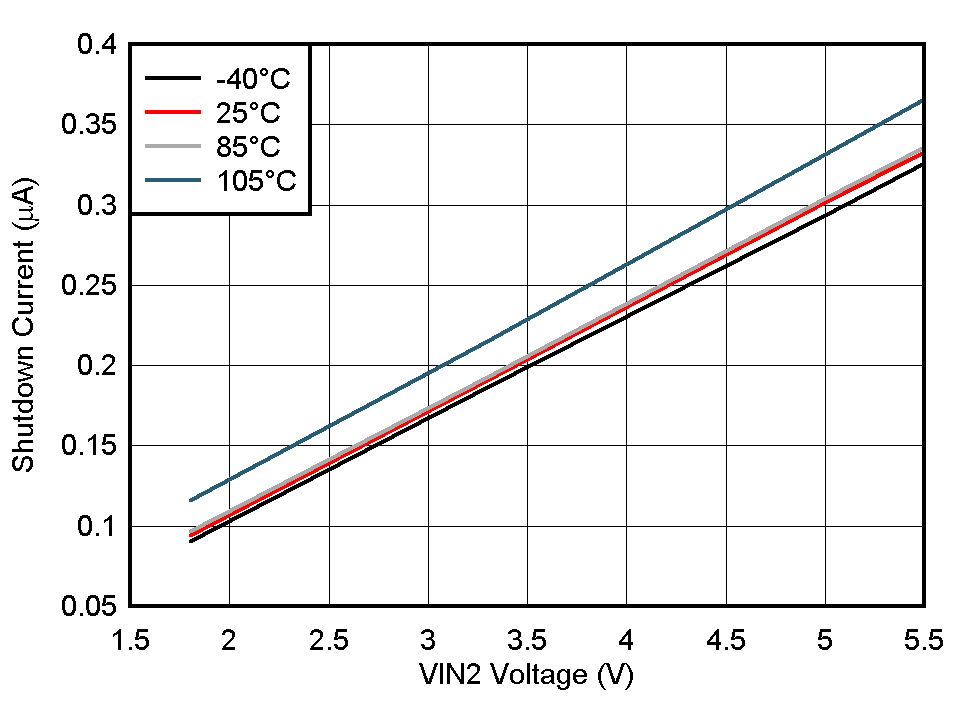
| VIN1 = 1.6 V | VOUT = 0 V |
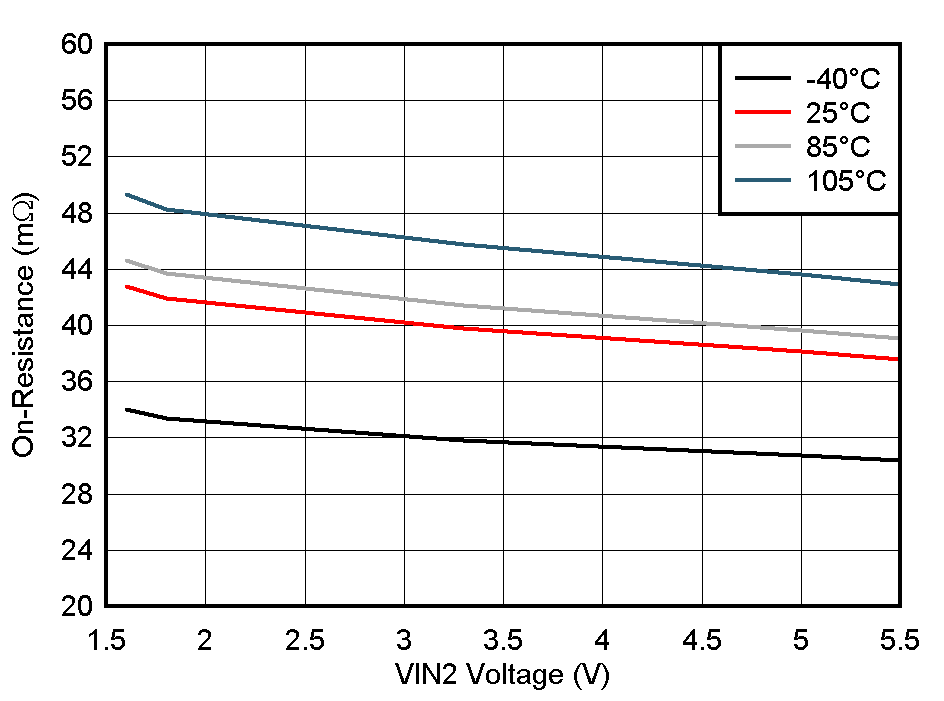
| IOUT = 200 mA |
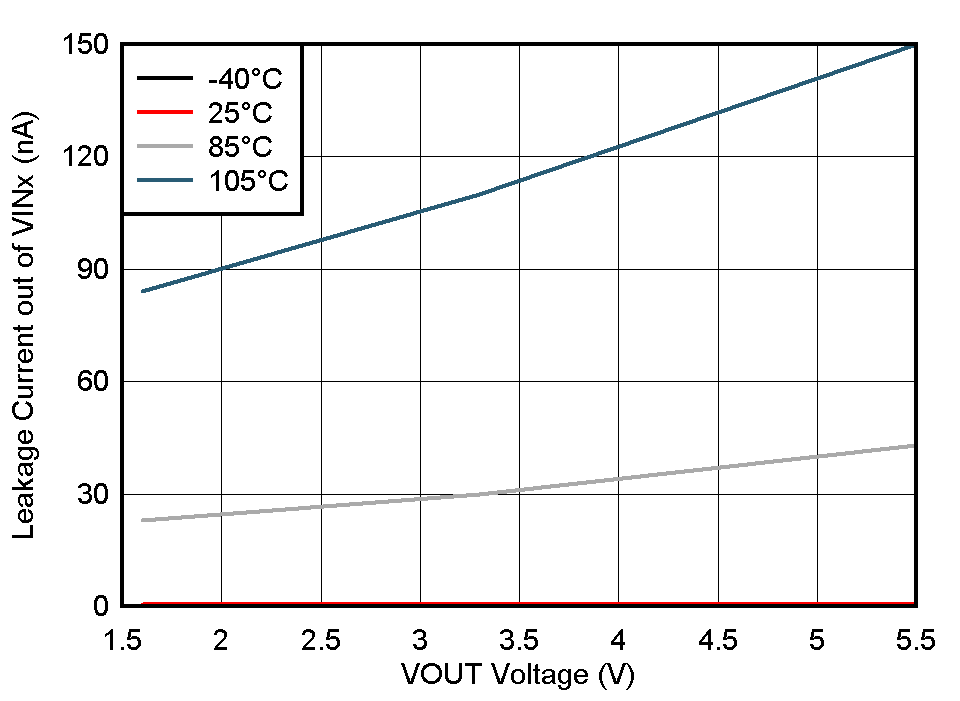
| VINx = 0 V | VINy = Open |